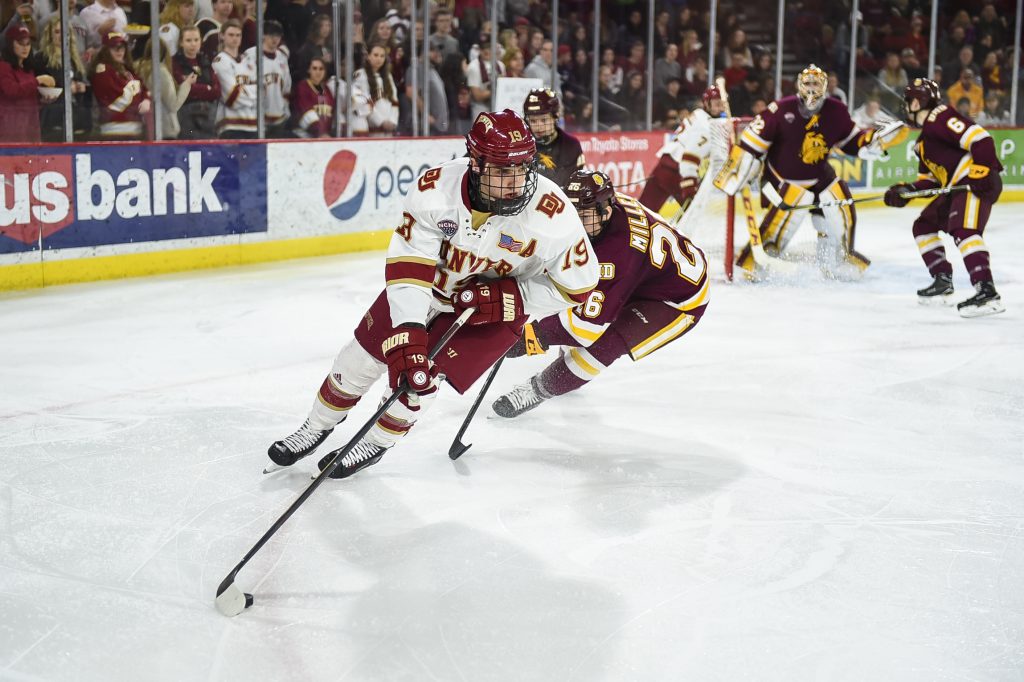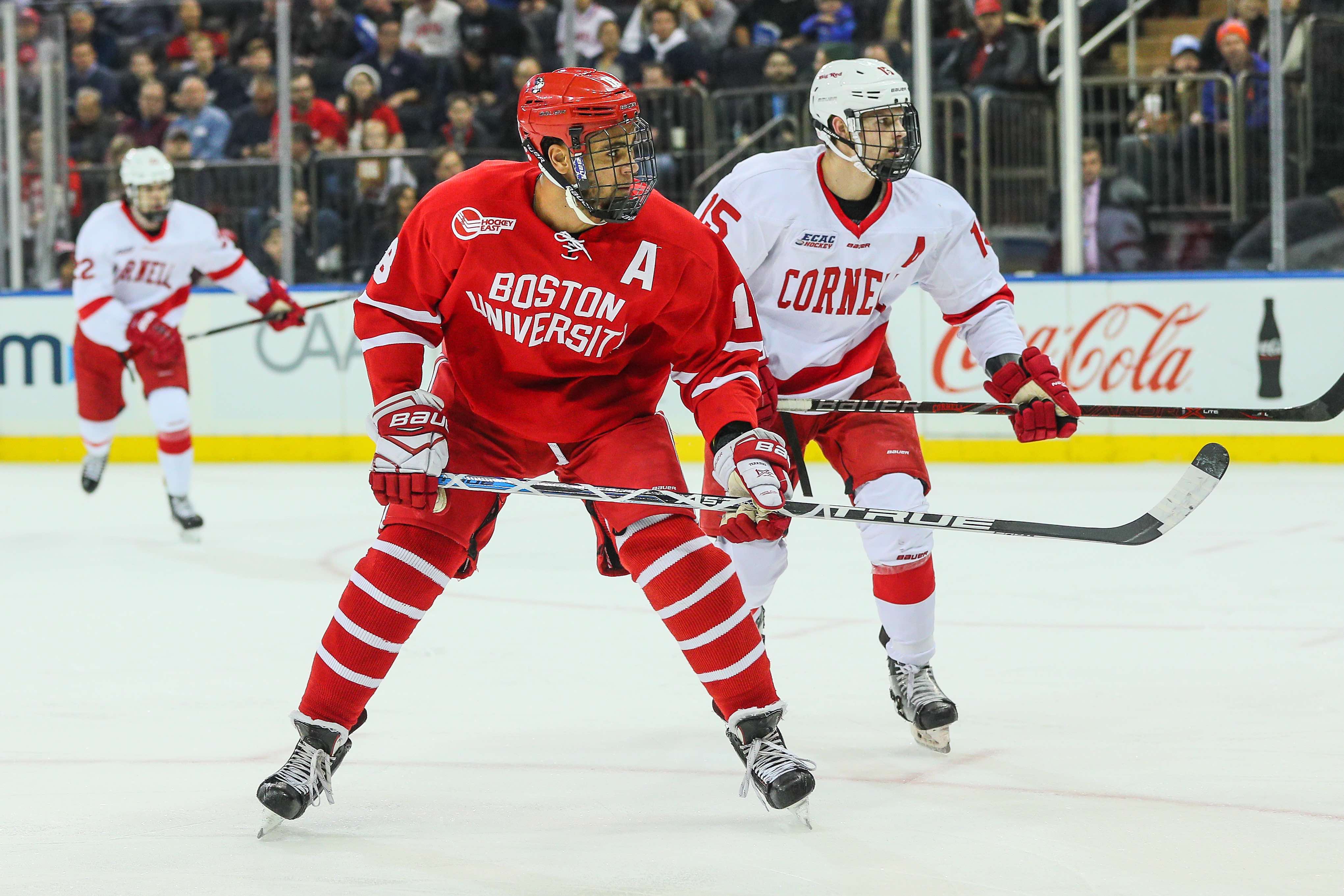The composition of the 2018 Olympics’ men’s hockey competition changed dramatically when the NHL announced in September that it would not be releasing its players to participate in the Games.
When play gets underway on Wednesday, it will be the first time that the Olympic Games haven’t included NHL players since 1994. That will effectively render this year’s competition as something other than a “best-on-best” tournament.
In one regard, that bodes well for American chances for a gold medal in PyeongChang, as Canada has captured the last three competitions (2016 World Cup of Hockey, 2014 Olympics, 2010 Olympics) that included NHL’ers.
In Vancouver in 2010, the US lost in agonizing fashion in overtime to Canada on Sidney Crosby’s “Golden Goal” after American Zach Parise scored to tie the game in the remaining seconds of regulation. The US hasn’t won an Olympic gold in men’s hockey since 1980, the year of the famed “Miracle on Ice.”
With the absence of current NHL players, Russia jumps to the front of the pack in men’s hockey, even though it won’t be called that. The “Olympic Athletes of Russia” will represent their country even though it is formally banned from the Games for a widespread, state-run doping operation.
Their roster includes former NHL stars Pavel Datsyuk (39) and Ilya Kovalchuk (34), and a quality, if aged, former NHL defenseman in Andrei Markov (39). They are all drawn from Russia’s Kontinental Hockey League (KHL), which is arguably the world’s second best league behind the NHL and only recently expanded beyond the country’s borders. The Russians haven’t won gold in men’s ice hockey since they participated as the Unified Team in 1992.
“Russia’s got the most talented players in the world. They’re going to have a team that steps on the ice with the most talented players,” said US head coach and former Olympian, Tony Granato. “Does that make them the best team for two weeks? No. We all know how sports work. All you’re looking for is an opportunity to make the most and be the best you can be for that period of time.”
The men’s hockey competition is comprised of three pool-play games, then a single-elimination qualifying round that takes the original field of 12 teams down to eight and into the quarterfinals. The benefit of winning a pool is getting a first-game bye in the qualifying round. The Americans are in the same pool as Slovenia, Slovakia, and Russia.
They’re captained by Brian Gionta (39) a former NHL player without the resumé of the Russian trio. Four Americans – Troy Terry, Jordan Greenway, Ryan Donato, and Will Borgen – are currently college hockey players. When Greenway, who is a forward for Boston University, takes the ice he will do so as the first African-American player to represent the US at the Olympics. He’ll also be its biggest player this year at 6’5”.
The most interesting opportunity and biggest concern for the US is in goal. They have three goalies on the 25-man roster – Ryan Zapolski, David Leggio, and Brandon Maxwell – who have never played a game in the NHL. Leggio (Clarkson) and Zapolski (Mercyhurst) were walk-ons in college. Zapolski plays for the Helsinki-based Jokerit of the KHL and of the three projects as the starter.
“We’re trying to prove some doubters wrong,” Zapolski said in a recent press conference. “We’ve all had pretty successful pro careers, I think, but we still have doubters, for sure. And I think that’s a motivation for us. We’ve been overlooked pretty much our whole careers – much of us – so just in the back of our minds we still think of those times where people didn’t give us the right chances and have this opportunity now to kind of take advantage of that.”
This year’s team lists players from 12 states, including defenseman Bobby Sanguinetti, whose hometown on the USA roster is Wilmington, North Carolina. He is originally from Trenton, New Jersey and is currently playing professionally in Lugano, Switzerland – three locales that hardly comprise a triumvirate of hockey prowess.
Tragically, this year’s team will have a bond that has solidified it much more quickly than the rest of the 12-team field. The general manager and architect of the US team, Jim Johannson, died in his sleep late last month at the age of 53. Johannson, who played alongside Granato at the 1988 Olympics, was the voice on the phone that told each player that they were US Olympians. He also stitched together its roster fabric, including making history by adding Greenway to a squad that lacked overall size.
“It’s devastating, honestly,” US defenseman James Wisniewski told the Los Angeles Times. Wisniewski is a former Anaheim Duck who was plying his trade for a second-division team in Germany when he received the call from his friend Johannson that, were NHL players included, would never have come. “I got such great pride and joy when he got to call me and tell me that. I had chills down my spine.”
* * *
Oddsmakers projected the men’s hockey field as follows in terms of likelihood of winning the gold medal: Olympic Athletes of Russia (1:1), Canada (9:2) Sweden (9:2) Finland (8:1) Czech Republic (9:1) USA (10:1) Switzerland (33:1), Germany (66:1), Slovakia (80:1), Norway (100:1), Republic of Korea (400:1), Slovenia (400:1)

Denver University’s Troy Terry is one of four collegiate players on the 2018 U.S. Men’s Olympic Hockey Team. Photo courtesy Carol McKay/University of Denver







